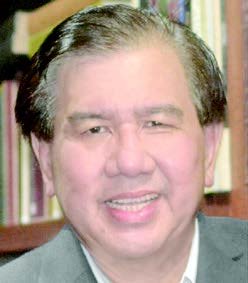TREASON is a war crime, so there must be a war between the Philippines and another State for treason to be committed. When peace reigns, there can be no traitors. The crime of treason is punished by a State as a measure of self-defense. A Filipino citizen or an alien residing in the Philippines, may be held accountable for treason. Treasonous intentions may reside in the hearts of men, but if there is peace, such dormant intentions will not be grounds to convict a person of treason.
In a 1902 case involving Maximo Abad, an "insurgent officer," treason was defined as the "violation by a subject of his allegiance to his sovereign or the supreme authority of the State." That the offender must owe allegiance to the government is an element of treason. Allegiance pertains to the obligation of fidelity and obedience which a person owes to the government from whom he receives protection. Treason, therefore, is a fatal act of ingratitude.
Continue reading with one of these options:
Ad-free access
P 80 per month
(billed annually at P 960)
- Unlimited ad-free access to website articles
- Limited offer: Subscribe today and get digital edition access for free (accessible with up to 3 devices)


